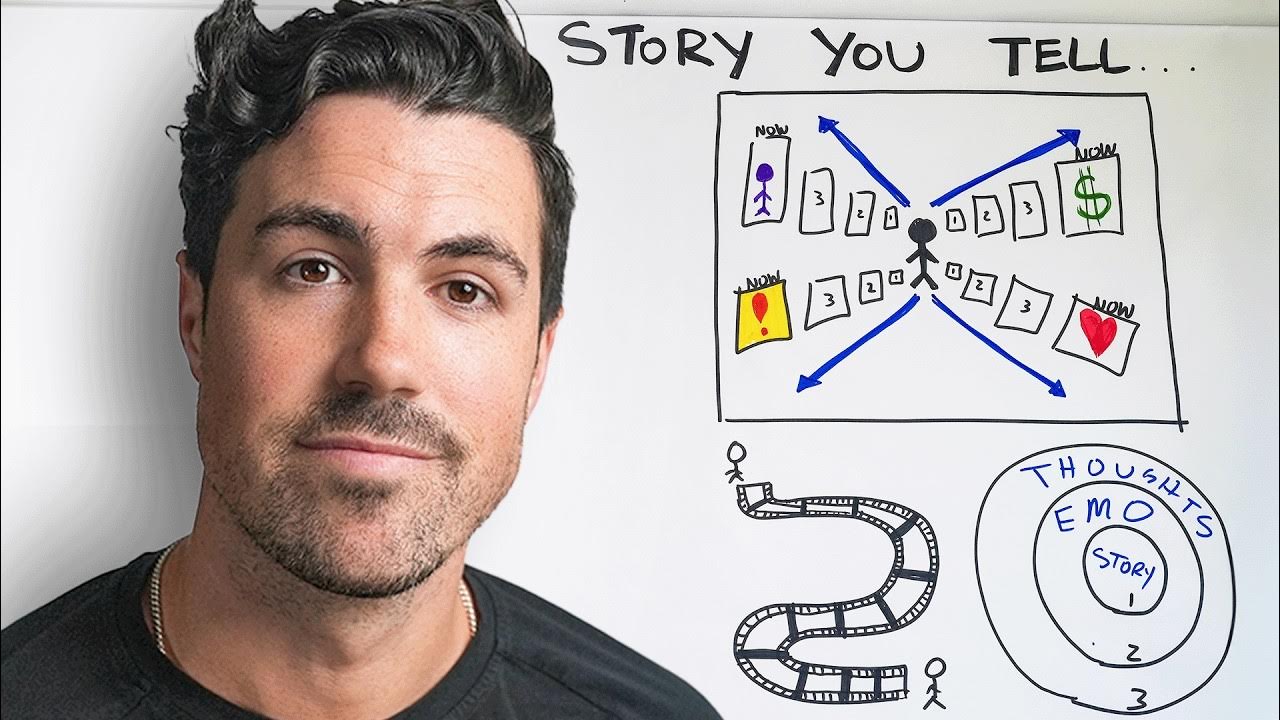Hidup Dikendalikan Rasa Takut? Ini Cara Menghadapinya!
Summary
TLDRIn this video, Michael discusses the powerful role fear plays in shaping our lives, distinguishing between constructive and limiting fears. He explores common fears, such as fear of failure, rejection, and loss of control, and how they can both protect and hinder us. Drawing from psychological concepts, he emphasizes that fear is a natural instinct but must be balanced with courage to unlock our full potential. Michael encourages viewers to confront their fears and step out of their comfort zones, whether it's in business, relationships, or personal growth, for a more fulfilling life.
Takeaways
- 😀 Fear is a common feeling that can limit your potential if you let it control your life.
- 😀 Fear can prevent us from pursuing new opportunities like starting a business, trying new things, or changing jobs.
- 😀 Fear is not always bad—it serves as a natural instinct to protect us and ensure our survival.
- 😀 Life is a dance between desire and fear. If we balance both, we can unlock our true potential.
- 😀 Everyone experiences fear, even those who seem calm on the outside.
- 😀 Fear has a negative stigma, but it can also be beneficial. It helps us stay safe, like stopping at a red light or locking the door at night.
- 😀 Living in constant fear can stop you from negotiating for a better salary or taking risks that could improve your life.
- 😀 Fear is a primal human instinct that warns us of danger and helps us avoid harm.
- 😀 There are five core types of fear: fear of extinction, fear of mutilation, fear of loss of autonomy, fear of separation, and fear of ego death.
- 😀 Signs that your life might be controlled by fear include perfectionism, staying in unsatisfying situations, and being unable to say 'no' to others.
Q & A
What is the main topic discussed in the video script?
-The main topic is the role of fear in life, how it affects decision-making, and how to balance fear with courage to unlock personal potential.
What does the speaker suggest about the impact of fear on life?
-The speaker suggests that while fear is a natural instinct that helps protect us, if we allow it to dominate our decisions, it can limit our potential and prevent us from taking necessary risks for growth.
How does the speaker relate fear to personal growth?
-The speaker explains that fear can either hold us back or push us toward personal growth. It is important to recognize and manage fear, but also to challenge it when necessary to move forward and reach new levels of success.
What are the five types of fear mentioned in the script?
-The five types of fear are: 1) Fear of extinction (fear of death or ceasing to exist), 2) Fear of mutilation (fear of losing a body part or function), 3) Fear of loss of autonomy (fear of losing control), 4) Fear of separation (fear of being rejected or abandoned), 5) Fear of ego death (fear of losing one’s identity or being humiliated).
What is the concept of 'sweet spot' mentioned in the video?
-The 'sweet spot' refers to a balance between desires and fears, as described by Tony Robbins. When we can align both, we find the ideal point to unlock our true potential and move forward in a positive direction.
How does fear manifest in the context of career decisions?
-Fear can manifest in career decisions, such as not negotiating salary due to the fear of being judged or rejected. This fear may prevent someone from pursuing opportunities that could lead to personal and professional growth.
What does the speaker say about perfectionism and its connection to fear?
-The speaker links perfectionism to a fear of failure, rejection, and criticism. People may strive for perfection in order to gain acceptance and love, driven by the fear of not being good enough.
What advice does the speaker give about taking risks?
-The speaker advises that it is important to take risks and step out of your comfort zone if you want to improve your life. Although fear may hold you back, taking action and making changes can lead to greater happiness and success.
How does the speaker differentiate between bravery and foolishness?
-The speaker defines bravery as the ability to face fear and act despite it, such as jumping from a plane or making a tough decision. However, foolishness is doing something dangerous without considering the risks, like crossing the street when the light is red.
What is the key lesson from the research about paratroopers preparing to jump?
-The research shows that people react to fear in different ways. Some may not feel much fear, others might be paralyzed by it, and the brave ones are those who experience fear but manage to overcome it and take action.
Outlines

This section is available to paid users only. Please upgrade to access this part.
Upgrade NowMindmap

This section is available to paid users only. Please upgrade to access this part.
Upgrade NowKeywords

This section is available to paid users only. Please upgrade to access this part.
Upgrade NowHighlights

This section is available to paid users only. Please upgrade to access this part.
Upgrade NowTranscripts

This section is available to paid users only. Please upgrade to access this part.
Upgrade NowBrowse More Related Video

Fear vs Belief: Why You Manifest Heartbreak Faster Than Love | Relationship Trauma Healing

Lesson 5 (Contemporary World): Global Media Culture

Core Stories: The Most Underrated Way to Change Your Life (Identity Shifting)

همهی دنیا سعی میکنن ما رو بترسونن ولی ما چطور نترسیم؟

Melatih Mental jadi Berani | Courage is Calling

Weirdest Phobias People Suffer From!
5.0 / 5 (0 votes)